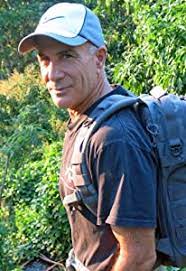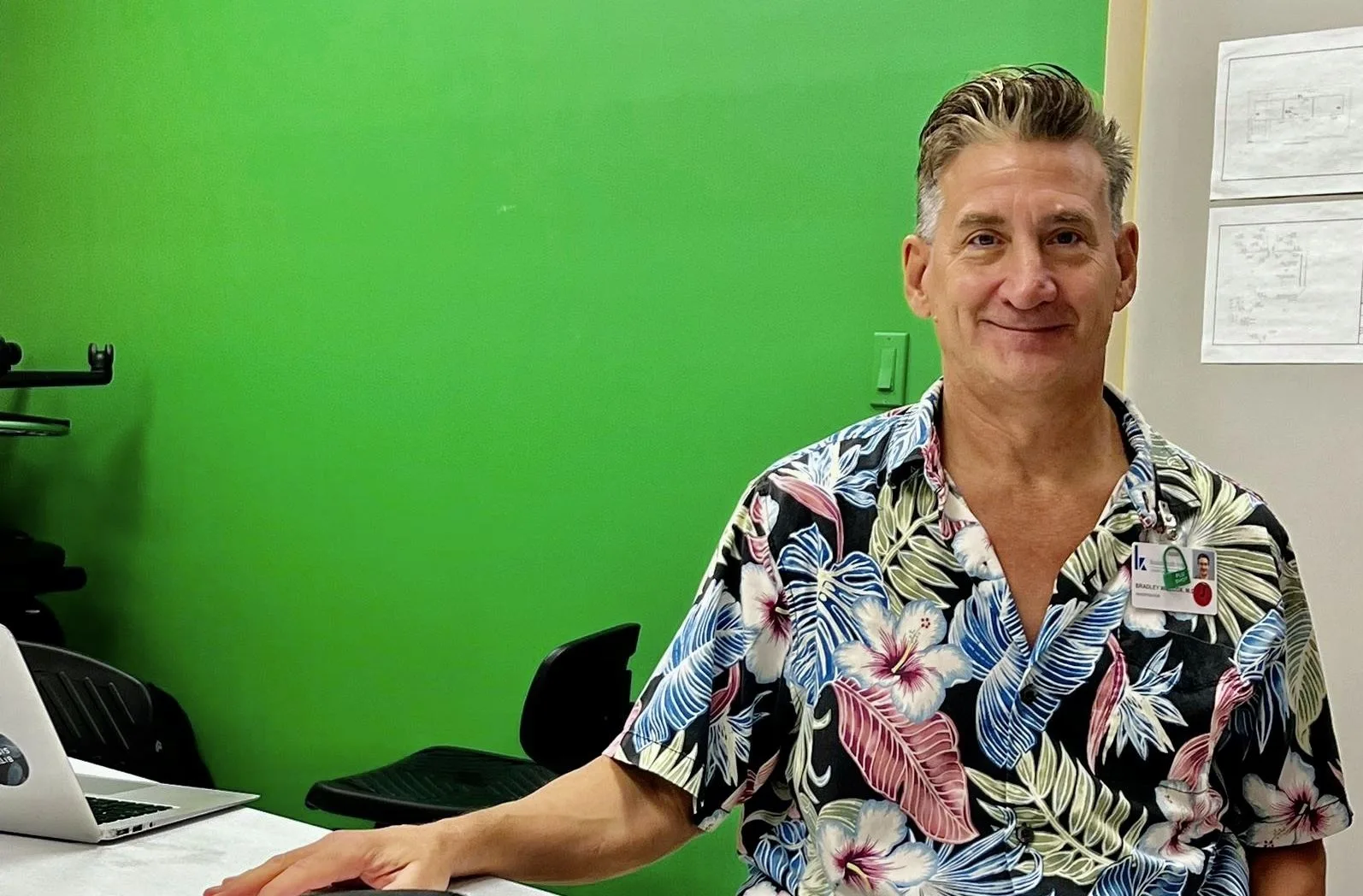With more people living longer, there’s a growing desire to extend longevity with healthy aging. Understanding how humans can age better is of vital importance for many reasons. But what does it really take to maintain good health as you age? Robert F. Kay, the original Fiji Lonely Planet author and founder of Figiguide.com and columnist for Hawaii Reporter and the Honolulu Star-Advertiser. went to find out from one of the world’s leading longevity scientists.
Why Dr. Bradley Willcox Believes Healthy Aging Is Achievable
Kay interviewed world-renowned longevity scientist and author Dr. Bradley Willcox on his home soil in Hawaii. Dr. Bradley Wilcox is the Principal Investigator of the National Institute on Aging-funded Kuakini Hawaii Lifespan Study and Kuakini Hawaii Healthspan Study. Wilcox is also a Professor and Director of Research at the Department of Geriatric Medicine, John A. Burns School of Medicine, University of Hawaii. A New York Times Best Selling Author of the “Okinawan Program” he is the Co-Principal Investigator of the Okinawa Centenarian Study. Dr. Willcox has been investigating mechanisms of aging for almost two decades with this study.
Understanding the science of aging
Trained at the University of Toronto, the Mayo Clinic, and Harvard Medical School, he’s on the Editorial Board of several leading gerontological journals, including the Journal of Gerontology. Recognized with a Dorothy Dillon Eweson Award for Advances in Aging Research, the Henry Christian Award from the American Federation for Medical Research, a Director’s Citation from the Centers for Medicare and Medicaid Services, and other honors, Wilcox is also the author of a New York Times best-selling book on healthy aging, The Okinawa Program. His work has appeared in cover articles for Time Magazine, National Geographic, and on Oprah, Good Morning America, NOVA Science, BBC, and other outlets.
Our genes and major longevity risk factors
Willcox’s research teams have achieved this by identifying numerous important genetic and environmental risk factors for aging and aging-related chronic diseases.
Indeed, his research team in Okinawa identified the first longevity-associated gene and the association of the FOXO3 gene with human longevity.
Q: What is the FOXO3 gene, and why is it so essential for longevity?
A: In short, the FOXO3 gene, which everyone has, is strongly associated with human longevity. However, people with certain variants of this gene have a 2-3 times greater chance of living to 100. I’m also convinced that FOXO3 is connected to mitigating inflammation.
The bottom line is that even if you don’t have the “best” FOXO3 variant in terms of longevity, by expressing or “turning on” the gene, you’ll be able to duplicate the “longevity” mechanism.
Q: Can you explain the connection between inflammation and aging?
A: Oxidative stress and inflammation are the key factors for the development of chronic disease and the ravages of old age. Oxidative stress—let’s call it inflammation, is believed to be a principal mechanism of aging.
Q: How do you prevent inflammation and chronic disease?
A: The good news is that many ailments can be markedly delayed and largely prevented by a healthy diet, exercise, and other lifestyle factors. The right food can be a powerful prophylaxis that can thwart illness. The Okinawan people — who are the longest-lived people in the world — use the term nuchi gusui, which literally means “food is medicine.”
Modern medicine is just beginning to understand the biochemistry behind the concept of food as medicine. After two decades of research, I believe that the Okinawan diet is a veritable Rx for longevity and healthy aging.
Q: So how do you “turn on” the FOXO3 gene?
A: You can do it by eating certain foods, which is one of the functions that the Okinawan diet achieves. What we’ve learned is that certain micronutrients are found in the same foods I mentioned earlier. These include Okinawan sweet potatoes, turmeric, marine-based carotenoid-rich foods (e.g., seaweed and kelp) as well as other items which have compounds such as astaxanthin that will express this gene.
Q: Can we all get the same nutrition and foods in the Okinawan diet, living elsewhere?
A: Absolutely. Consuming the right foods, with the right micronutrients, mitigates the risk of many age-associated diseases. Also, it modulates the very rate of aging. Thus, it’s no coincidence that the Okinawans consume homegrown turmeric, sweet potatoes (the purple ones), and other local foods. This includes several vegetables rich in marine phytoactive compounds, such as astaxanthin.
More importantly, they will help mitigate inflammation, which is not our friend.
Q: What is astaxanthin, and why is it so important?
A: Yes. It’s known as a marine carotenoid, found in seaweeds and kelp. It’s part of the Okinawan diet and shows particular promise in our research. The compound has powerful, broad-ranging anti-oxidative and anti-inflammatory properties.
Research indicates astaxanthin may benefit those suffering from inflammation-related conditions including arthritis and rheumatoid disorders. Also metabolic disease, as well as cardiovascular, neurological, and liver diseases.
It’s available as a supplement both in a natural form and as a natural-identical compound.
Q: Explain the difference between a natural product and the “nature identical” product?
A: This is a natural compound (sold as Bioastin) derived from algae, whereas the nature-identical version (ZanthoSyn) is synthesized. They are both good for you. ZanthoSyn, however, has greater bioavailability. This means it’s absorbed better by your system and hence packs more punch. One 12gr ZanthoSyn tablet is roughly equivalent to three 12 g tablets of Bioastin. (Full disclosure, I’m on the scientific advisory board for Cardax, the company that produces ZanthoSyn).
Q: You said the Okinawan Diet is a veritable Rx for longevity. Can you draw a distinct connection between diet and healthy aging?
A: Healthy aging, which means the absence of chronic illness, is the best way to grow old! Eating the foods I’ve described can help prevent you from getting ill.
By some estimates, 80% of coronary heart disease (CHD) and type-2 diabetes mellitus and 40% of cancers may be prevented by modifying dietary habits.
We’ve found that Okinawans who eat a traditional diet gained an additional 6% survival time from age 65 (1.3 years) versus other Japanese and an additional 20% survival time (3.6 years) versus Americans.
Perhaps most notable is that Okinawans gained almost a decade of additional disability-free life expectancy compared with Americans. Some of the compounds that help express the gene, such as, other marine carotenoids such as polysaccharide fucoidan, xanthophyll fucoxanthin has some amazing qualities such as inhibiting cancer growth, fostering reduction in bad cholesterol, and lowering triglycerides.
The shorthand is that by stimulating the FOXO3 gene with the right foods and phytonutrients, odds are you will live longer and healthier.
Q: What other biological roles do these foods play in assisting healthy aging?
A: The compounds contained in the foods I mentioned trigger our biological systems into mimicking an ancient survival mechanism called caloric restriction. Caloric restriction has been unequivocally proven to make organisms live longer.
It sounds strange, but the less you eat (up to about 30% less than usual), the longer you live, so long as you maintain a diet adequate in macro- and micronutrients. A diet that contains compounds that turn on caloric restriction’s biological mechanisms may also make you live longer and healthier.
Q: I thought caloric restriction means fasting—starving yourself. I don’t want to do that!
A: You don’t have to starve yourself to promote caloric restriction. Instead, you can mimic caloric restriction by eating certain foods that imitate caloric restriction’s biological effects; thus getting the benefits of caloric restriction without the deprivation. Our studies, and those of others, have shown strong support for this.
Q: Can you discuss any recent research you’re involved in that might be of interest?
A: I’m glad you asked. My colleague Richard Allsopp, a Ph.D. Professor over at the John A. Burns School of Medicine has just recorded preliminary findings from a trial focused on how astaxanthin impacts FOXO3 in mice. Like me, Dr. Allsopp focuses on the cellular and molecular mechanisms of aging. What he’s found seems to confirm what we believe about the efficacy of astaxanthin.
The upshot is that when mice ingest astaxanthin, FOXO3 is expressed in a statistically significant manner in the heart and to a lesser degree in the blood and skeletal muscles. This implies that you’re getting an anti-flammatory and stress resistant effect from astaxanthin in vital organs.
By “stress resistant” I mean that you’re seeing a reduction in inflammation in the tissue, which can be measured by reduced cytokine levels. If it reduces inflammation in a mouse, that’s a pretty good indication that it will work in humans too.
Q: In closing, do you have any parting advice on healthy aging?
A: Eat lots of vegetables and fish. Engage in regular physical activity, avoid tobacco, and drink moderately. And yes, it wouldn’t hurt to take astaxanthin either.
Additional scientific references
The FoxO3 gene and cause-specific mortality: Bradley J. Willcox, Gregory J. Tranah, Randi Chen, Brian J. Morris, Kamal H. Masaki, Qimei He, D. Craig Willcox, Richard C. Allsopp, Stefan Moisyadi, Leonard W. Poon … See all authors
FOXO3 and Exceptional Longevity: Insights From Hydra to Humans: Philip M.C. Davy,* Richard C. Allsopp,* Timothy A. Donlon,†‡ Brian J. Morris,†§¶ Donald Craig Willcox,†§|| and Bradley J. Willcox†§,1
https://www.ncbi.nlm.nih.gov/pmc/articles/PMC7295567/
About the author
 Robert Kay is the original author of the Fiji Lonely Planet Guide as well as the founder of FijiGuide.com (a popular South Pacific travel site). He covers digital media, consumer tech, health, wellness, travel, and a myriad of other topics.
Robert Kay is the original author of the Fiji Lonely Planet Guide as well as the founder of FijiGuide.com (a popular South Pacific travel site). He covers digital media, consumer tech, health, wellness, travel, and a myriad of other topics.
Kay began his journalism career with the San Francisco Chronicle Foreign Service in 1975. He later worked as news department director for KVML-KROG in Sonora, California. His history with Fiji began with a press trip in the early 1980s on Continental Airlines. He resonated with Fiji and ended up spending about a year living near Suva. It was here that he was “adopted” by a local family. During this period he worked as a freelance writer, traveling around Fiji, penning travel articles, and doing research. The experience led to a guidebook for the Lonely Planet series and a subsequent Lowell Thomas Travel Journalism Award .
When the Internet offered creators an opportunity to publish online, his LP book became the core of Fijiguide.com back in ’96. He continues to update and refine FijiGuide on a regular basis. Rob has also contributed to a number of newspapers. These include Newsday, San Jose Mercury, Seattle Times, San Francisco Chronicle, Chicago Tribune, Los Angeles Times, and the Wall Street Journal. He currently writes a regular column on technology and sustainability for the Honolulu Star-Advertiser.






![women [longevity live]](https://longevitylive.com/wp-content/uploads/2020/01/photo-of-women-walking-down-the-street-1116984-100x100.jpg)









